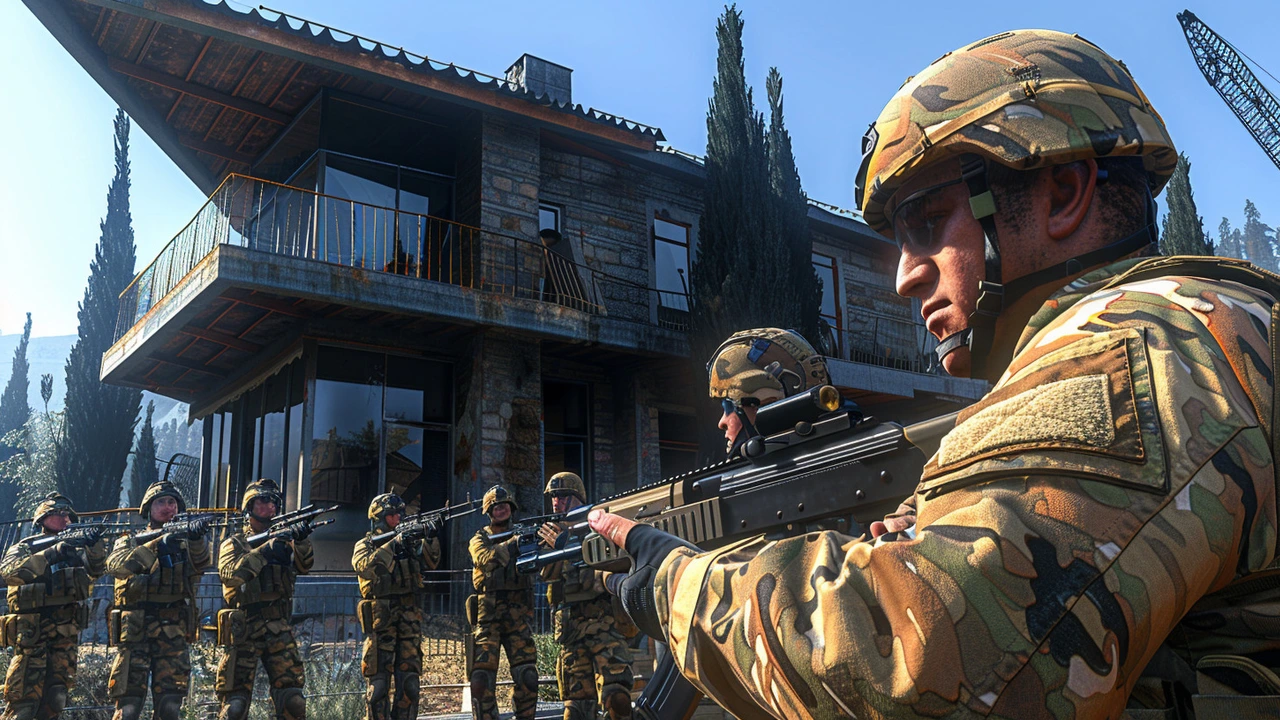Bolivia’s Presidential Palace Assault Sparks Fears of a Coup
Amid escalating political chaos, an armed assault on Bolivia's presidential palace has left the nation on edge. The violent incident, deemed an apparent coup attempt, involved a group of heavily armed men who launched an aggressive attack on the seat of the government. This alarming development further intensifies the political crisis that has been brewing in Bolivia since the controversial ouster of former president Evo Morales in 2019.
A Shocking Ordeal
The assault took place when President Luis Arce was not present in the palace, which likely spared his life. Nevertheless, the audacity and precision of the attack sent shockwaves through the nation, highlighting the depth of discontent and the potential for further escalations. Government sources have pinned the blame squarely on right-wing factions. Officials claim these groups are trying to destabilize the country and reclaim power through violent means.
The assailants, armed with an assortment of weapons, made their move under the cover of darkness. As they breached the security perimeter of the presidential palace, they engaged in a fierce firefight with security forces. The clash lasted several hours, leaving damages and a palpable sense of fear among the citizens. It was a scene that many Bolivians never thought they would witness, adding to a sequence of violent and unstable conditions that have become all too familiar.
Political Tensions Boil Over
In the aftermath of the attack, President Arce condemned the act as a direct assault on democracy and the will of the Bolivian people. He called for unity and vigilance, urging citizens to stand firm against what he termed 'terrorist acts' aimed at undermining the country's fragile stability. His words resonated with a population already wearied by years of political turmoil and economic hardship.
The roots of this unrest can be traced back to the tumultuous ousting of Evo Morales in 2019. Morales, who had been Bolivia's president for nearly fourteen years, was forced to resign amidst accusations of election fraud. His departure ignited widespread protests, violent clashes between supporters and detractors, and eventually led to the interim presidency of Jeanine Áñez. The 2020 elections saw Luis Arce emerge victorious, promising to heal the nation's deep wounds and steer towards a more stable future.
Ongoing Protests and Political Strife
Despite these promises, significant portions of the Bolivian population remain distrustful and divided. Protests have been a constant presence in the streets of major cities, reflecting the ongoing dissatisfaction and polarizing opinions about the country's leadership and direction. These protests often escalate into violence, further exacerbating the country's volatile environment.
Many analysts believe that the latest attack is a symptom of a broader and more dangerous malaise. It signifies not just political opposition but an outright rejection of the current administration's right to govern. The attackers' motives, according to some reports, extend beyond mere political rivalry, tipping into the realm of ideological warfare.
External Influences and Internal Struggles
Adding another layer of complexity, international actors have also played roles in Bolivia's internal affairs. Countries with vested interests in Bolivia's natural resources and geopolitical alignment keep a close watch and sometimes provide implicit support to various factions within the country. This external meddling has only compounded the internal divisions, making it harder for any administration to foster a sense of national unity.
In such a charged atmosphere, the possibility of further violence cannot be ruled out. Security forces remain on high alert, bracing for potential retaliatory actions or even more coordinated attempts to disrupt governance. Meanwhile, ordinary Bolivians find themselves in a precarious situation, navigating a landscape where political instability often translates into immediate and tangible hardships—ranging from economic downturns to threats against personal safety.
The Road Ahead
As Bolivia stands at this critical juncture, the path ahead is fraught with challenges and uncertainties. President Arce faces the monumental task of proving his administration's legitimacy and effectiveness while endeavoring to unify a fractured nation. His call for unity must be backed by solid policy measures that address the root causes of the unrest, including economic disparities, indigenous rights, and transparent governance.
Failure to address these fundamentals may result in a perpetuation of the cycle of violence and instability. Many experts assert that Bolivia's future hinges on comprehensive dialogue and reconciliation processes that involve all key stakeholders—be it indigenous communities, opposition factions, or civic organizations. Establishing trust between the government and its citizens would be a crucial step toward ensuring lasting peace.
Bolivians' Hope for Stability
For now, residents of Bolivia watch with bated breath as events unfold, hoping for a return to stability and normalcy. The international community also watches closely, cognizant that Bolivia's political health has broader implications for regional stability in South America. Diplomatic channels are likely to be more active in the coming days, as neighboring countries and international bodies seek to mediate and offer support to prevent a further descent into chaos.
In these uncertain times, what remains clear is the resilience of the Bolivian people. Despite the challenges and threats, their indomitable spirit continues to shine through. It is this resilience, paired with wise and inclusive governance, that holds the key to overcoming the current crisis. As the nation navigates these tumultuous waters, the world hopes that Bolivia can emerge stronger, united, and at peace with itself.
Stay tuned as we continue to monitor and report on this developing situation, providing insights and updates on what is undoubtedly a pivotal moment in Bolivia's history.






Write a comment